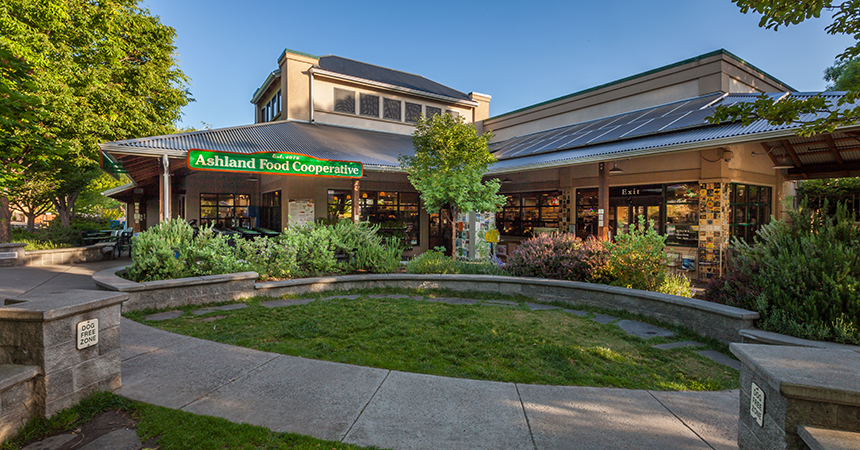Sustainability is a priority for Ashland Food Cooperative, like stocking shelves with locally made organic goods. The member-owned organization formally committed to improving its sustainability in 2007 and has since set its sights on becoming carbon neutral by 2030.
To help the co-op become as energy efficient as possible, the co-op teamed up with Energy Trust of Oregon in 2019 to make lasting operational changes that help reduce natural gas usage. Through the Strategic Energy Management (SEM) offering, the co-op has earned more than $80,000 in cash incentives and completed energy-saving actions that have trimmed natural gas costs by over $6,500 annually.
Chris Byrne and Markus Mager led the charge, hunting down energy waste, carrying out projects and educating staff on energy-saving habits. “SEM hasn’t just helped our organization become more efficient, it’s also made everyone here more energy aware,” said Mager. “Whether it be turning off the lights or not arbitrarily adjusting thermostat settings, everyone’s doing their part here and at home, too.”
The creation of Bryne and Mager’s roles was a result of the co-op’s commitment to sustainability and enrollment in SEM. Participating in the offering has been key to keeping operations running smoothly and efficiently. Bryne and Mager work closely with an Energy Trust SEM energy coach who provides resources and insight to help set them up for success. “The monthly meetings with our energy coach and the site visits we go on through SEM have made us consider opportunities that we didn’t see before,” said Bryne.
Solving heating and cooling headaches with SEM
Winter once meant staff complaints about the chilly temperatures inside the store. Bryne and Mager tried a few different fixes, but nothing seemed to work. After a group discussion with their SEM cohort, they had a lightbulb moment and realized a building management system could provide the relief staff were asking for.
The co-op now has Google Nest smart thermostats that monitor heating and cooling performance and help pinpoint the cause of staff discomfort. The smart thermostats also control the co-op’s different zones around the clock and help them plan for seasonal adjustments. “It is so helpful to have real-time information on what’s going on in the building,” said Byrne.
Strategic Energy Management (SEM): A catalyst for innovation
Businesses and organizations that take part in SEM establish an annual energy plan to chart their savings journey. Having a comprehensive plan with specific milestones helps Bryne and Mager keep daily goals front and center. “SEM keeps us on our toes,” said Bryne. “There are so many things going on here, but SEM helps us keep the milestones and O&M projects we want to achieve top of mind.”
The knowledge gained through SEM helps the team spot energy waste more quickly. Trainings Bryne and Mager completed as part of their SEM education taught them exactly what to look for. “When we go on walkthroughs of the property, we have more awareness of what might waste energy,” said Bryne.
Each milestone the co-op reaches motivates Bryne and Mager to aim even higher. “Our work is a continuous process. SEM helps us set a routine and make sure nothing falls through the cracks,” said Bryne. SEM’s structure and milestone incentives make it easier to dedicate resources to energy-efficiency improvements. “Having defined outcomes has helped our organization move forward,” said Mager.
Want to learn how Energy Trust’s SEM offering can help you save on utility costs and modernize your equipment? Contact us for details.

